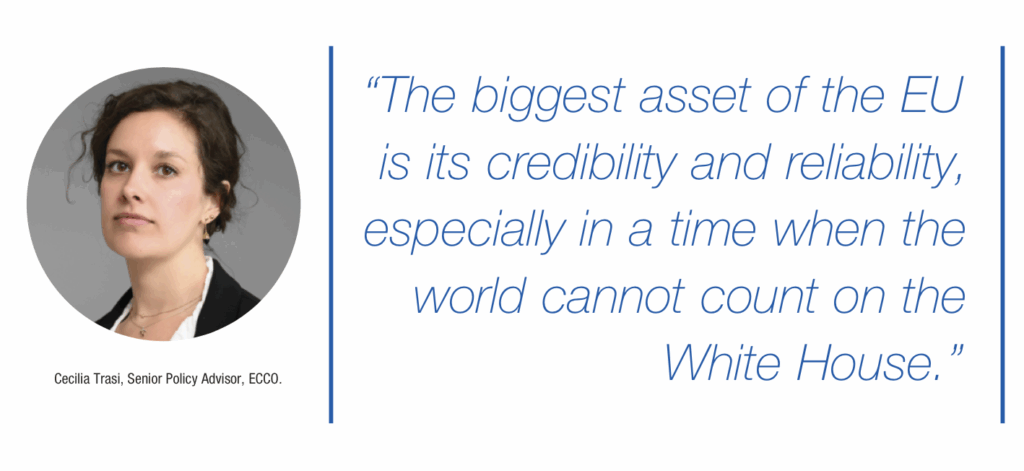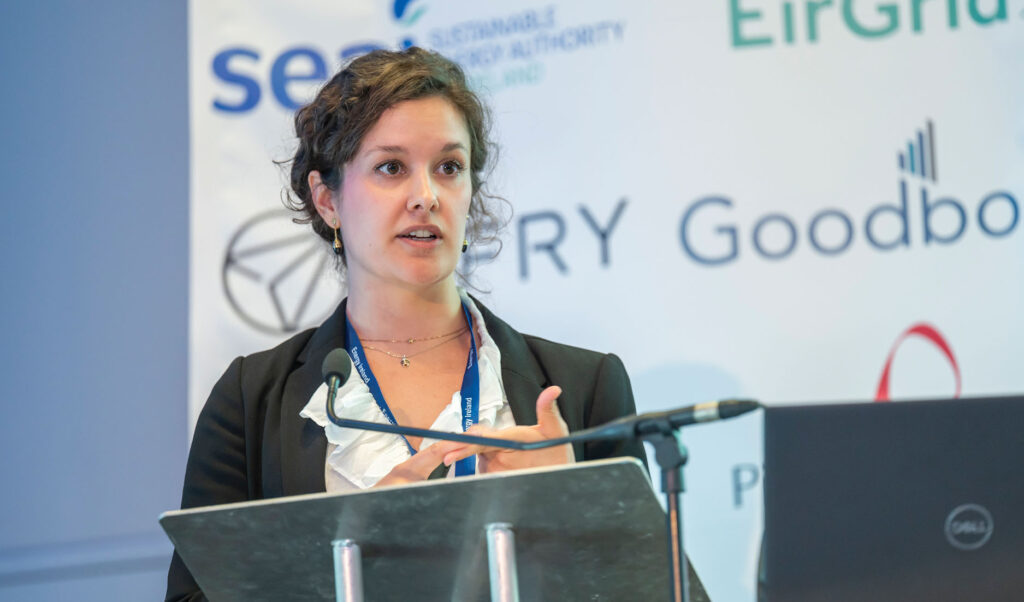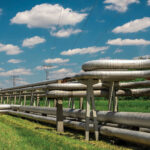
District heating bill approved
13th October 2025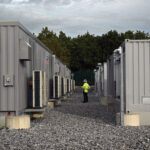
VPI: Delivering flexibility in Ireland’s energy transition
13th October 2025The Trump effect
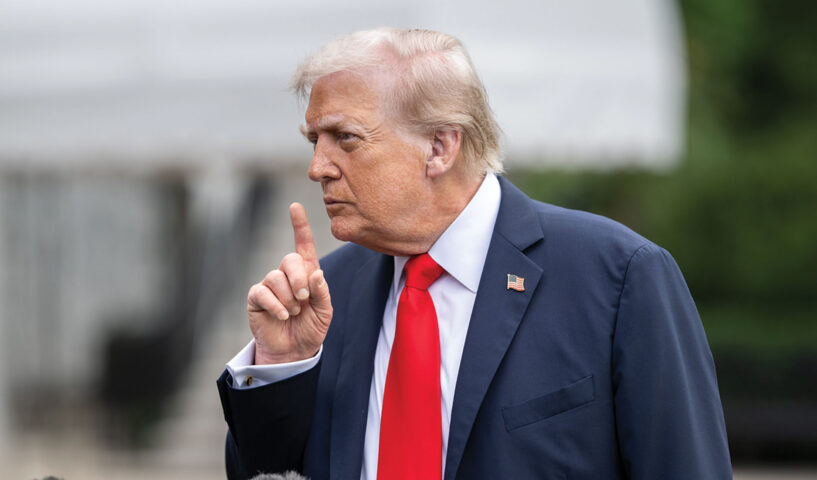
Credit: Harrison Koeppel
Cecilia Trasi, Senior Policy Advisor at ECCO – an energy and climate change think-tank based in Milan – explores the ramifications of the Trump administration’s ‘America first’ agenda, and its subsequent attack on renewable energy initiatives.
As the return of Donald Trump to the White House continues to wreak havoc with the global order. Trasi explains that the ‘America first’ agenda rests on three pillars: the “mantra of ‘drill baby, drill’, the rejection of climate multilateralism, and the weaponisation of trade tariffs – with tariffs acting as leverage to force partners to bend to his agenda”.
As Europe recovers from the energy crisis, triggered by the Russian invasion of Ukraine – and the subsequent hard pivot away from Russian gas and toward American liquified natural gas (LNG), progress has been made on the European Green Deal, which legally binds the commitment of the EU to achieve net zero by 2050. However, as Trasi outlines: “The big question is, will the EU stay on course to meet its targets as the White House pursues an ‘America first’ approach?”
A ‘fossil-fuel first’ agenda
Describing US policy as “fossil-fuel first”, Trasi argues that the US is aiming to achieve energy dominance, “despite being the world’s largest exporter of natural gas… Trump signed an executive order declaring a ‘national energy emergency’ in the US. The US is willing to position itself as a swing supplier for both the European and Asian markets, aiming to account for 70 per cent of global LNG export capacity by 2027”.
Lamenting Trumps decision to expunge the US from the Paris Agreement, Trasi says these actions “tilt the odds heavily in favour of overshooting the Paris Agreement target of 1.5 degrees temperature increase. Current estimates predict an increase by 2.7 per cent by the end of the century, with Trump’s actions accounting for 0.4 degrees increase by 2100”.
The decisions taken by Trump are not simply ideological, but also strategic. Highlighting Chinese dominance of the clean technology value supply chain, Trasi explains that this means the “obvious competitive advantage is in fossil fuels, and this is where Trump has placed his bet”.
“That is why Congressional Republicans gutted $370 billion of clean energy tax credits [contained in the Inflation Reduction Act,] as part of the One Big Beautiful Bill Act. GOP hardliners saw these credits as a gift to Chinese workers.”
Unintended advantages
This may create a competitive advantage for the EU. Trasi suggests the EU “could react to this by offering a safe harbour for green energy investment, especially if it decides to pursue a bold industrial policy, and double-down on commitments of the clean industrial deal. This deal is a blueprint for industrial policy to achieve both a faster transition of the energy intensive industries and supporting clean technologies, while also improving our industrial competitiveness”.
Lambasting Trump for his use of trade tariffs, Trasi accuses Trump of using the EU’s over-reliance on American LNG as “geopolitical leverage”, rationalising Trump’s actions by saying, “he suggested that tariffs imposed on European goods such as cars, steel, and aluminium, could be reduced in exchange for the EU agreeing a long-term LNG deal worth more than $350 billion. Trump has justified this as levelling up the trade imbalance that exists between the EU and US. However, this imbalance is only around 3 per cent and this is not just about energy. It is about control, and undermining the green transition of strong potential markets, rather than being dogmatic”.
The EU subsequently agreed to procure $700 billion worth of US LNG, oil, and nuclear energy in a trade ‘deal’ agreed in July 2025. This appears contradictory to the aims of REPowerEU, a European Commission plan to diversify the Bloc away from Russian Gas, but also a call to phase natural gas out by 2035. Trasi says this is because of “structural demand and faster electrification of transport and heating, and industrial decarbonisation”.
Chinese energy
With the global order facing increasing trade uncertainty, Trasi states that “there is a clear distinction in the energy prices industrial players face in the EU compared to the US and China. Gas and electricity prices tend to be between three to five times the ones in the US and China. Therefore, being exposed to price volatility is bad news for industrial competitiveness and does not do anything to advance it”.
When asked if China could be the next leader in clean technology, Trasi gives a balanced response. On the one hand, “[China] is the most obvious alternative in cleantech manufacturing and tech deployment in renewable energy sources. The country is estimated to have met its own renewable energy targets six years in advance and deploying clean tech at the rate unparalleled worldwide”.
However, the level of emissions emanating out of China, with its booming industrial strength and colossal population, is huge, and as Trasi points out: “To say it [China] is going to be next climate leader would be to ignore the reality of its strong dependence on coal.
“Even if China kept decreasing its emissions, it would still consume most of the carbon budget available by 2030.”
EU ‘must stand its ground’
In a rallying cry to European leaders, Trasi states that the Green Deal is “not only about securing the EU’s climate future, but it will also enhance industrial competitiveness and economic security.
“We must not retreat on our transition objectives, rather, it is a time for refinement and standing our ground. We must not bend to pressure from the Trump administration, we must avoid entering long-term LNG deals, and increase investment in clean tech supply chains, that also means deepening the relationship with third countries such as China. This is going to be highly controversial, of course, in the face of Trump.
“The biggest asset of the EU is its credibility and reliability, especially in a time when the world cannot count on the White House, it is up to the EU to stand its ground and not retreat.”

